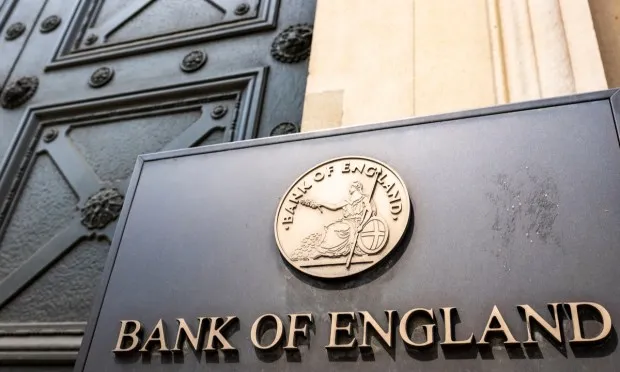Business
The Capital’s Banking Pulse and the Repricing of Global Risk

Introduction
London’s banking system is undergoing a profound adjustment as global markets reevaluate the cost of risk. After years of low interest rates and easy liquidity, the financial capital now faces a recalibrated environment where capital is more expensive, credit is tighter, and investors are increasingly cautious. The era of cheap borrowing that defined the previous decade has given way to one shaped by prudence and balance sheet discipline.
According to the Bank of England, demand for both consumer and corporate loans has declined over recent quarters. Banks operating in London, from domestic lenders to global institutions, are rethinking their strategies amid changing interest rate dynamics. The city’s financial pulse reflects this transformation, as institutions work to maintain resilience while adapting to a more uncertain global landscape.
The New Global Risk Landscape
The shift in global monetary policy has redefined how markets perceive and price risk. The US Federal Reserve, the European Central Bank, and the Bank of England have all maintained restrictive stances in response to persistent inflation. This coordinated tightening has led to higher funding costs and reduced liquidity in global markets.
London’s banks, deeply embedded in cross-border financial flows, are now managing higher volatility in currency and bond markets. Reuters reports that funding costs for major UK banks have risen by nearly fifteen percent this year, affecting profitability and lending capacity. For investors, this environment has reduced the appeal of leveraged positions and high-yield assets that once benefited from ample liquidity.
Monetary Policy and Financial Stability
The Bank of England’s focus remains on curbing inflation without undermining financial stability. Headline inflation has eased but continues to hover above target, creating pressure for policymakers to keep rates elevated. The trade-off is clear: higher rates stabilize prices but weigh on business investment and household borrowing.
Recent data from the ONS indicate that corporate investment growth in London has slowed to its weakest level in over two years. Mortgage approvals have fallen, and demand for new credit has softened. Still, the sector remains fundamentally strong. Stress tests conducted by the Bank of England confirm that major UK banks have sufficient capital buffers to withstand adverse scenarios. The system is stable, yet the mood is cautious.
Institutional Strategy and Market Behavior
Banks in the City of London are shifting their business models to adapt to new realities. Investment banks are reducing exposure to high-volatility markets, while asset managers are diversifying into safer fixed-income assets. The Financial Times reports a notable increase in risk management staffing across leading institutions as firms enhance their capacity for data-driven forecasting.
London’s position as a global financial center remains intact, supported by its regulatory framework, expertise, and international connectivity. However, competition is intensifying from hubs such as New York, Singapore, and Frankfurt. Maintaining an edge will require investment in digital infrastructure, transparent regulation, and innovation in financial technology.
Corporate Credit and Market Adjustment
Corporations are also navigating the challenges of higher interest rates. Refinancing costs have climbed, and many firms are restructuring debt to avoid potential liquidity stress. IMF data highlight that corporate leverage remains elevated worldwide, increasing systemic sensitivity to prolonged monetary tightening.
In London, banks are focusing lending activity on sectors with stable cash flow, such as infrastructure, healthcare, and renewable energy. Private equity transactions have slowed, but institutional investors are showing renewed interest in long-term sustainable finance opportunities. This shift toward quality lending and green finance is reshaping the city’s investment landscape and strengthening its long-term economic foundation.
Geopolitics and Regulation
Geopolitical uncertainty continues to influence financial sentiment. The Russia-Ukraine conflict, shifting trade dynamics between China and Western economies, and energy price instability all contribute to heightened market caution. London’s banks are reassessing global exposure and prioritizing compliance and risk management across international operations.
Regulatory agencies such as the Financial Conduct Authority and the Prudential Regulation Authority have intensified oversight on liquidity ratios and credit exposure. Their goal is to safeguard the system from the kind of contagion seen in regional US bank collapses earlier this year. Strong supervision and prudent policy remain London’s comparative advantages in a volatile global financial environment.
Policy Direction and the Path Forward
The UK government’s economic policy will play a central role in shaping the next phase of the banking cycle. With limited fiscal room for large-scale stimulus, the emphasis is on regulatory flexibility, digital innovation, and support for sustainable investment. Policymakers aim to ensure that London remains competitive and open to global capital while maintaining financial stability.
City-level initiatives are equally important. London authorities are promoting infrastructure development, fintech collaboration, and environmental finance. Together, these efforts aim to strengthen the city’s appeal as a hub for both traditional banking and emerging financial technologies.
Conclusion
London’s banking sector is adapting to a transformed global environment where risk is repriced and resilience is tested. The city’s institutions are stronger than in past cycles, but the coming period demands discipline, innovation, and cautious optimism. The balance between profitability and prudence will define the next phase of growth.
London’s financial heart continues to beat steadily, signaling both strength and sensitivity to the changing global rhythm. The capital’s future will depend on its ability to adapt intelligently and preserve its leadership in an era defined not by expansion, but by endurance and strategic foresight.






















